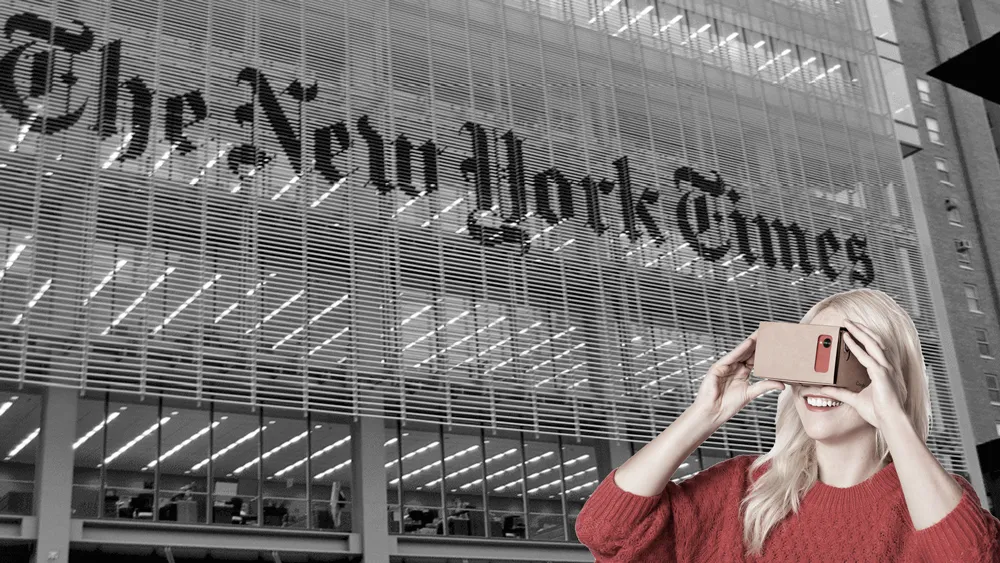The New York Times is one of the United States oldest and most venerable news outlets. It is also living proof that you can teach an old dog new tricks. Now that virtual reality has gone from niche interest to the the new “it” media technology, The Times has become one of the few “old media” institutions to intentionally adapt into the immersive space.
The Times now has a dedicated virtual reality app, a growing team of virtual reality professionals and an expanding catalogue of stories told exclusively through this exciting new medium. The most recent play by The Times to engage with this space is the purchase of Fake Love, an ad agency that specializes in virtual reality content.
This new addition will work closely with T Brand, the brand marketing unit of The Times, according to the team’s executive video producer, Sydney Levin. UploadVR had the chance to speak with Levin about the acquisition, the reasoning behind it and the future of immersive content for The Big Apple’s go-to news provider.
According to Levin the purchase of Fake Love ties directly into T Brand’s overall philosophy. As she puts it, “For us at T Brand, it all starts with a story. We’re dogmatic about finding the best way to tell a narrative. VR enables us to immerse our viewers in a film in a very different way than a linear creation.”
The acquisition was further compounded by the company’s realization that they needed more VR content to meet the growing desires of its reader base.
“After we released our first VR film (an award-winning CGI experience for GE) in tandem with the launch of our NYTVR app, desire for VR exploded,” Levin said. “As the request for films grew, we knew we needed to grow our team and in-house capabilities quickly.”
The decision to put up the cash to obtain Fake Love — an admittedly obscure group even for VR’s still adolescent standards — was, according to Levin, driven by the type of work that the boutique agency had demonstrated aptitude for.
“After creating Dearest [a 360-degree trailer for the Weinstein Company’s film ‘Carol’] with the Fake Love team in October, it became clear that Fake Love’s creativity and vision were very much in line with ours,” Levin said. “We think there’s no end in sight to the amount and types of narrative we can tell working with Fake Love. Docu-style linear, experiential/experimental films, VR, AR, – the sky’s the limit.”
Levin further outlined his unit’s vision for the newly absorbed agency by stating that Fake Love is not being directly directed by The Times but, “will work in tandem with T Brand Studio’s video team to continue to create docu-style, narrative VR films and experiential linear work. “The Making of an Ironman” for Infiniti is our most recent creation together, with many more to come this year.”
The future for The Times and virtual reality is still being written according to Levin, but the company does guide itself with a few basic principals.
“We’ve made a significant investment in the VR space,” Levin said. “Though we intend to create many more 360 films, it’s important to note that we’ll continue to stay true to our desire to tell stories that truly work in the medium vs. simply creating 360 for 360’s sake. It’s still a nascent technology, so we’re excited to work with Fake Love to push boundaries, figure out what works best and, above all, refuse to make rules about the medium at this early stage. ”
The Times was unwilling to share the exact amount that they paid for Fake Love. The NYT VR app is available for download now on iOS and Android devices.


























